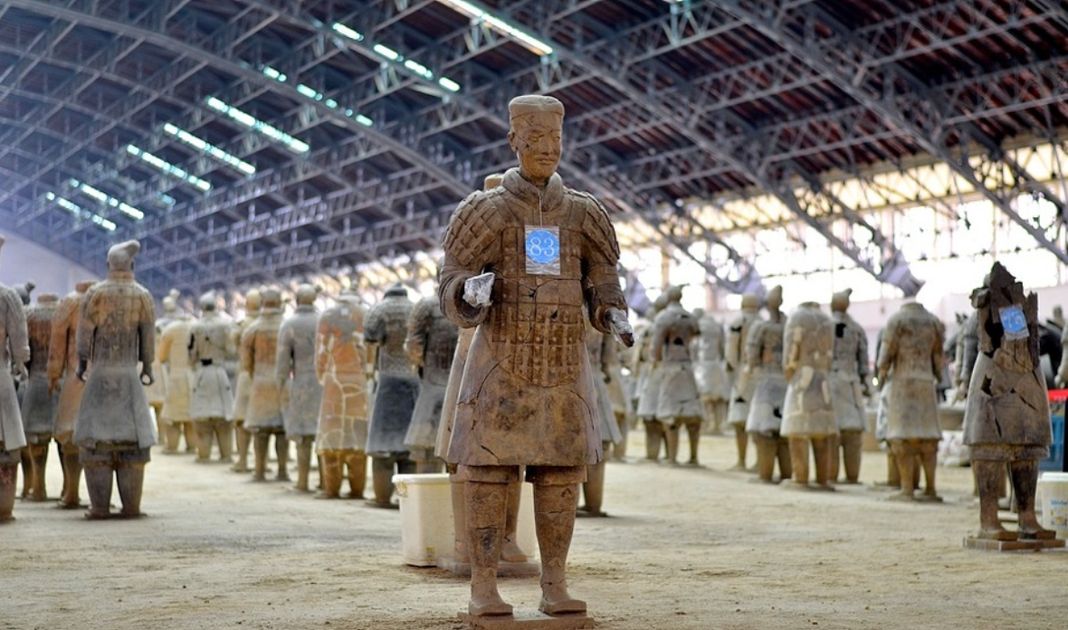Britain’s China strategy dilemma

(pixabay.com)
“The ‘wolf warrior’ ambassadors which have been out there giving a hard time to the French government and so on were not visible. It was noticeable that [the Chinese] are trying to de-escalate this right now. I think they do not want to give more ammunition for the Trump administration to pull the UK into a transatlantic alliance that then hardens the whole Europe-America position vis-a-vis China.”
This was Robin Niblett, Director of Chatham House, on the response of the Chinese to the British government’s recent “tough” measures: its ban on Huawei components from the 5G telecoms network, its suspension of an extradition treaty with Hong Kong (https://www.bbc.com/news/uk-politics-53476811), and its extension of a Chinese arms embargo to also include the territory of Hong Kong (https://edition.cnn.com/2020/07/20/uk/uk-hong-kong-extradition-gbr-intl/index.html).
Indeed it was Wang Wenbin (https://en.wikipedia.org/wiki/Wang_Wenbin) – perhaps China’s most amenable diplomat – who delivered the response, rather than the famously combative Zhao Lijian (https://en.wikipedia.org/wiki/Zhao_Lijian).
The UK now has two options: either to side fully with the Americans or to balance between the Americans and the Chinese. It’s not clear which option they will choose but, as Niblett argues, their decision will be highly influential. On the pro-balancing side, as we might expect, there are many supporters within ‘the City’ (London’s financial district).
“Potentially,” says economist Sara Hsu, “the UK could be harmed through its banking interests. There’s a lot of exposure by HSBC and Standard Chartered, which are really large banks, to Hong Kong and also to China … So, while we’re hoping that China has learned that trade wars are really harmful to both sides, this would probably be the most effective way of demonstrating to the UK that China is unhappy with its actions.”
So far, the Chinese have so far been much more aggressive with the Australians, both in terms of diplomacy (https://www.theguardian.com/world/2020/apr/29/chewing-gum-stuck-on-the-sole-of-our-shoes-the-china-australia-war-of-words-timeline) and actual trade war salvos (banning some beef imports and raising tariffs on Australian barley). Perhaps this reflects the fact that Australians have historically sided with the Americans and the Japanese against Beijing, for example in 1971 when voting against UN General Assembly Resolution 2758 which recognised the PRC as the only legitimate representative of China to the UN. The British voted in favour.
There has also been an increase in anti-American sentiments amongst the liberal UK political elite and its supporters, who are still bruised by memories of the Brexit defeat and see Trump as a grinning friend of Nigel Farage who wants to sell us chlorinated chicken (https://www.theguardian.com/commentisfree/2016/nov/23/farage-trump-buddy-photo-ukip). The leading voices on the pro-American side tend to have been hardline Brexiteers and “PRC-sceptic” has now entered the lexicon, replacing Eurosceptic as a fashionable position on the hard-right wing of the Conservative party.
“The democratic world is very divided,” says former Obama aide, Samantha Power, who served as US ambassador to the UN between 2013 and 2017. “It’s no secret that the Trump Administration, while rightly putting pressure on governments around the Huawei 5G issue has really not nurtured alliances to say the least. It has proven a very unreliable partner, not only in Europe but also in places like Korea and Japan. And what we need right now, given China’s assertiveness, its preparedness to bully, to intimidate, and to use its vast economic prowess for its own ends – we need a democratic coalition that’s prepared to coordinate and to fight back.”
Which is to say that Obama would be doing exactly the same as Trump right now but in a more mild-mannered – and therefore effective – way. Looking back to the UK’s previous dilemma on whether or not to side with the US, the Iraq War in 2003, Tony Blair was incredibly firm in his support for George W. Bush – despite widespread popular disapproval at home. It’s hard to imagine Boris Johnson (never a true Brexiteer) taking similar political risks to stand side-by-side with a man as deeply disliked and distrusted as Donald Trump. Especially when taking on an opponent as seemingly formidable as Beijing.
When the case against China is made in the UK, it’s always tied to ethical concerns – about human rights abuses, the treatment of the Uyghur minority, the Hong Kong national security law, etc. – rather than long-term strategic interests. This means it has also won strong support on the soft left, from prominent Trump critics like Labour MP Lisa Nandy.
The UK establishment has a particularly emotional attachment to Hong Kong, the last colonial outpost of any real significance, sovereignty over which was transferred to the Chinese in 1997. Chris Patten – its governor between 1992 and 1997 – spoke recently about the moral responsibility London still feels towards the territory:
“Right from the beginning, the people who brought the watch trade, textiles, shipping, to Hong Kong from Shanghai. But later on, more than half the population were people who fled the events of modern communist history, the Great Leap Forward, the Cultural Revolution, the tyrannous behaviour of Mao and some of his successors. They had swum to Hong Kong, they’d clamber over razor barbed wire to get to this safe haven.”
He blames Xi Jinping for the failure of the ‘One Country, Two Systems’ approach and it looks as though the moderate (anti-Brexit) Patten’s vocal support for the Hong Kong protesters has really bolstered the PRC-sceptics. A clear Biden victory on 3rd November may also strengthen the Americans’ hand in building up Power’s “democratic coalition” (if it’s true that this is what Biden wants – and it surely is).
Ultimately, however, it doesn’t serve British interests to try to prevent the further rise of China. Since the mid-1980s, Britain’s cultural and economic renaissance has been entirely dependent on its openness towards the rest of the world, as anyone who’s ever passed through or visited Heathrow Airport will be very well aware.
If Poland has the ULB doctrine, what does the UK – an island nation – have? BRIC and MINT, perhaps? As Jim O’Neill (https://www.youtube.com/watch?v=amhEoiuUgKU) – the Manchester United-supporting economist who came up with those two terms – put it recently, “China has been the biggest contributor to global GDP in the last 20 years. So why would we want to cut ourselves off from that?”
Autor
Thomas Riley
Thomas Riley runs the Flows and Frictions podcast for Strategy&Future. Originally from Manchester, England, he has been living and teaching English in Katowice since 2009.






Trwa ładowanie...